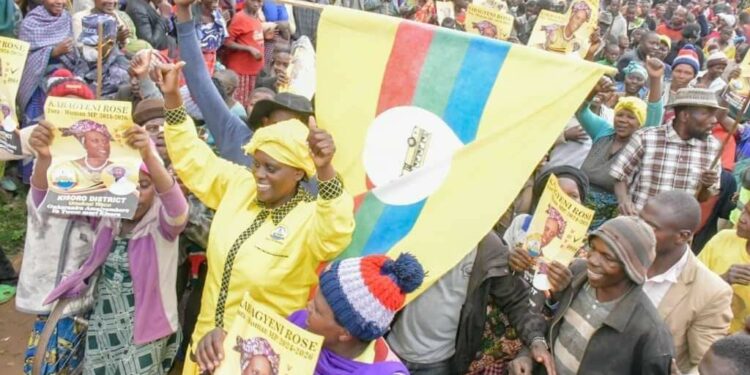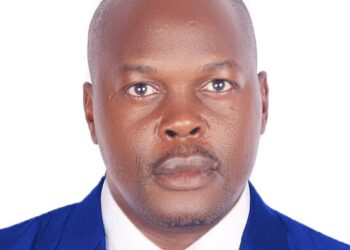The National Resistance Movement (NRM) leadership has often underscored the significance of the Kisoro by-election, framing it as a “must-win” contest to solidify the party’s dominance in Ugandan politics. According to some political analysts and party loyalists, a loss in Kisoro would signify an existential crisis for the NRM, suggesting that without the district, the party’s influence across the country would be significantly weakened.
However, this narrative needs to be critically examined. While Kisoro is undeniably important, the claim that an NRM loss in this district would spell the end of the party’s political dominance is an exaggeration that fails to account for the broader dynamics of Ugandan politics and the changing political climate across the country.
Kisoro: A Microcosm, Not a Measure of National Politics
Kisoro, like many other districts in Uganda, has its unique political landscape shaped by a combination of local issues, regional dynamics, and personal alliances that go beyond national party lines. It is important to remember that while Kisoro is a symbol of political power, it does not represent the entire country. The narrative that “if NRM isn’t in Kisoro, it isn’t anywhere in Uganda” is not only misguided but also dangerously narrow in its view of Uganda’s complex and diverse political environment.
Uganda is a country with a multiplicity of political realities across its various regions. What may work in Kisoro does not necessarily translate to other parts of the country. In the past, the NRM has managed to maintain strongholds in various regions, despite losing ground in other districts. A loss in Kisoro would be a setback, but it would not diminish the party’s broader influence or ability to operate across the rest of the nation. To suggest that Kisoro is the key to Uganda’s entire political future is to ignore the dynamic, evolving political landscape that has seen shifts across multiple regions in recent years.
The Changing Face of Political Affiliation
Ugandans are no longer blindly loyal to any single political entity, as has been evidenced in recent years with the rise of alternative political voices, especially among the youth, urban populations, and independent candidates. A victory or loss in Kisoro does not necessarily align with broader national trends or indicate a larger trend in voter sentiment.
The NRM’s historical dominance can no longer be taken for granted. The shift towards more diverse political expression, coupled with the rise of opposition parties, is a clear signal that Uganda’s political future may not rest solely in the hands of one party. Kisoro, while important, should be seen as a microcosm of the evolving political scene, rather than an unassailable bastion of NRM’s power.
Kisoro’s Independent Political Sentiment
Historically, Kisoro has been a battleground for both the NRM and the opposition. Local issues, such as service delivery, governance, and the economic interests of the region, often play a larger role in determining the outcome of an election than national party loyalty. Many voters in Kisoro are more concerned with the candidate’s ability to address their immediate concerns, rather than blindly supporting the NRM due to its national standing.
If the NRM loses the Kisoro by-election, it would reflect the district’s desire for more effective, locally-driven leadership, rather than a national shift away from the party. It is important for the NRM leadership to understand that voters in Kisoro, like elsewhere, are looking for credible leaders who can meet their needs and reflect their concerns.
The Overblown “Existential Crisis” Narrative
The framing of Kisoro as a make-or-break battleground for NRM is more of a political strategy than a reflection of the party’s actual power or potential loss. Over the years, Ugandan politics has demonstrated that no single district or election will define the fate of a party, no matter how important it may seem at the moment.
In the 2021 general elections, despite significant opposition victories in some districts, the NRM was still able to maintain a stronghold on the presidency and key parliamentary seats. Even if NRM were to lose in Kisoro, it would not mark the party’s collapse, but rather signal an opportunity for introspection and reinvention. The claim that “if NRM isn’t in Kisoro, then it isn’t anywhere in Uganda” overlooks the fundamental principle of democracy: voters make their choices based on a variety of factors, and no election is guaranteed.
Looking Beyond Kisoro: A Call for Reform and Engagement
The NRM should embrace a more grounded and holistic view of politics. Rather than fixating on a single district or election result, the party should focus on revitalizing its platforms, addressing issues of governance, service delivery, and the economic well-being of the entire country. Ugandans are more concerned with national issues than they are with the results of any one by-election, and this should be the focus of any political party.
Rather than seeing a potential loss in Kisoro as an existential threat, the NRM should view it as an opportunity for self-reflection, greater grassroots engagement, and a redefined political message that resonates with the evolving needs and aspirations of Uganda’s electorate. Losing a by-election is not the end of the world, nor should it be the end of any political movement’s credibility. It is an opportunity for growth and adaptation.
Conclusion
While Kisoro holds symbolic importance, it is critical for both NRM and its critics to avoid the trap of exaggerating the implications of a single electoral result. A loss in Kisoro may be a disappointment for the party, but it should not be seen as a death knell for its relevance or future in Ugandan politics. Political power is won and lost on a variety of fronts, and the future of Uganda’s democracy lies in addressing the broad needs of its people, not in clinging to a singular, overly idealized notion of electoral dominance.
Written by Twebembere Justus
A teacher by profession,
a computer practitioner ,
Farmer and a Hustler who spires hustlers.
twebemberejustus2017@gmail.com
Do you have a story in your community or an opinion to share with us: Email us at editorial@watchdoguganda.com













